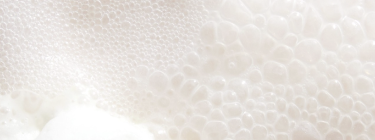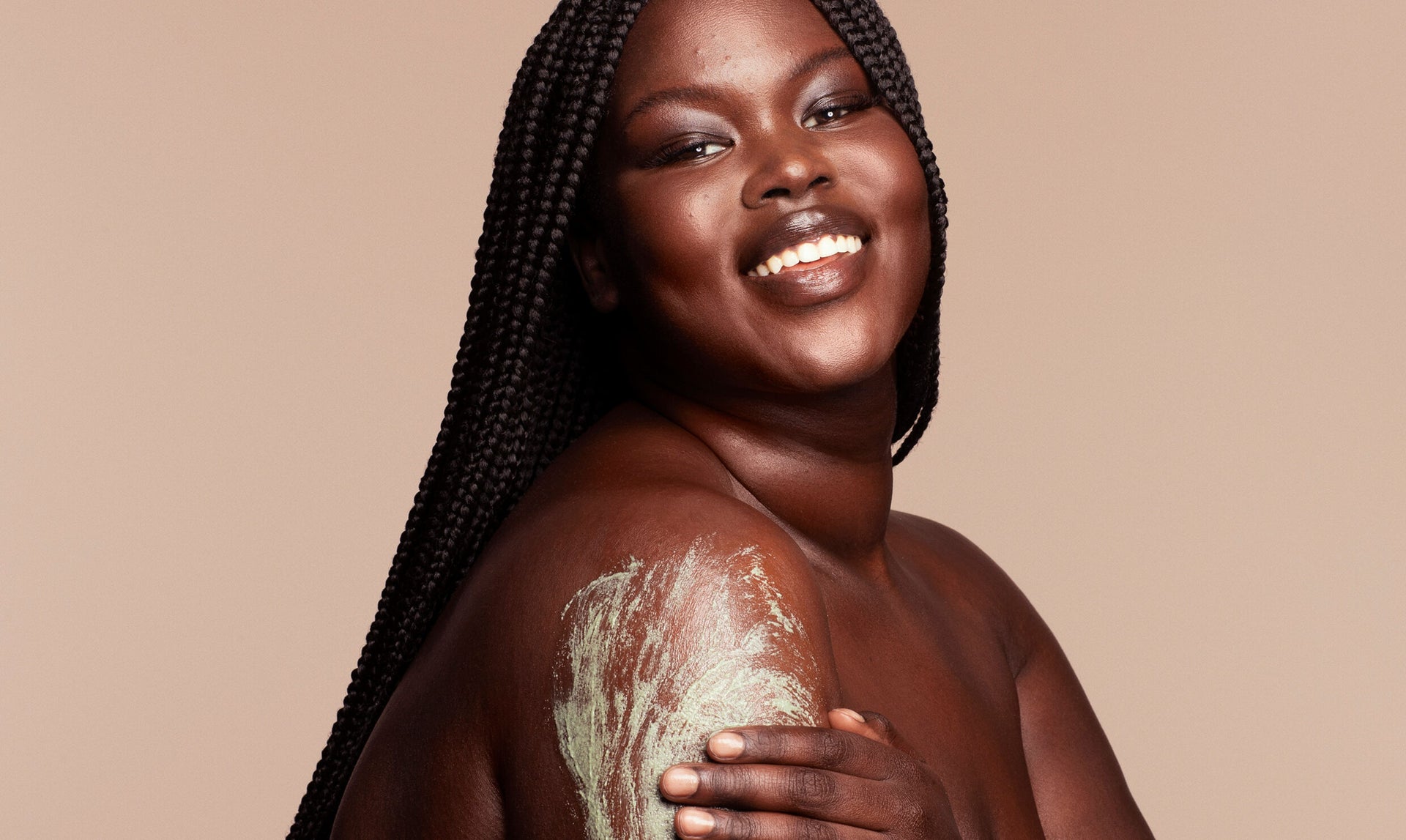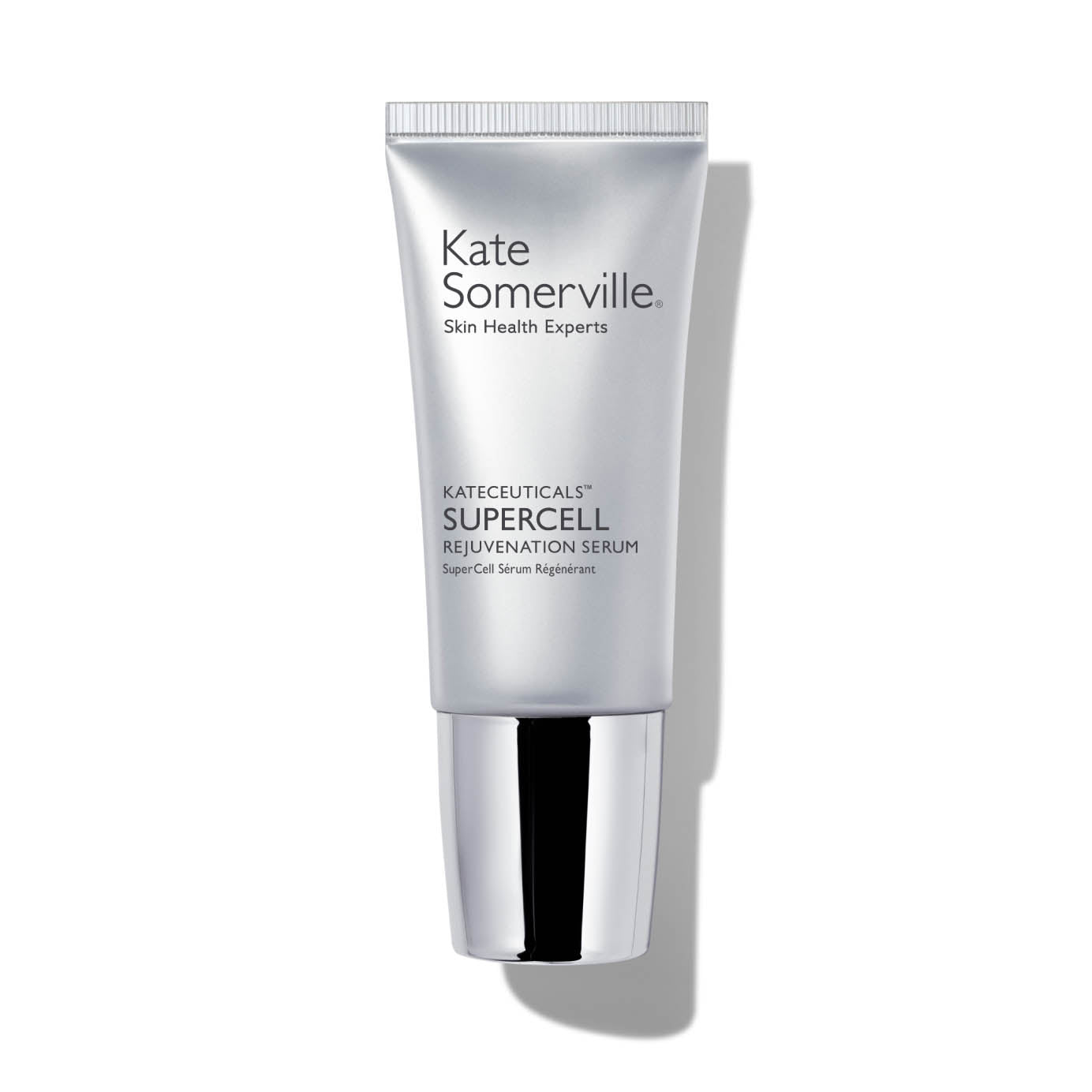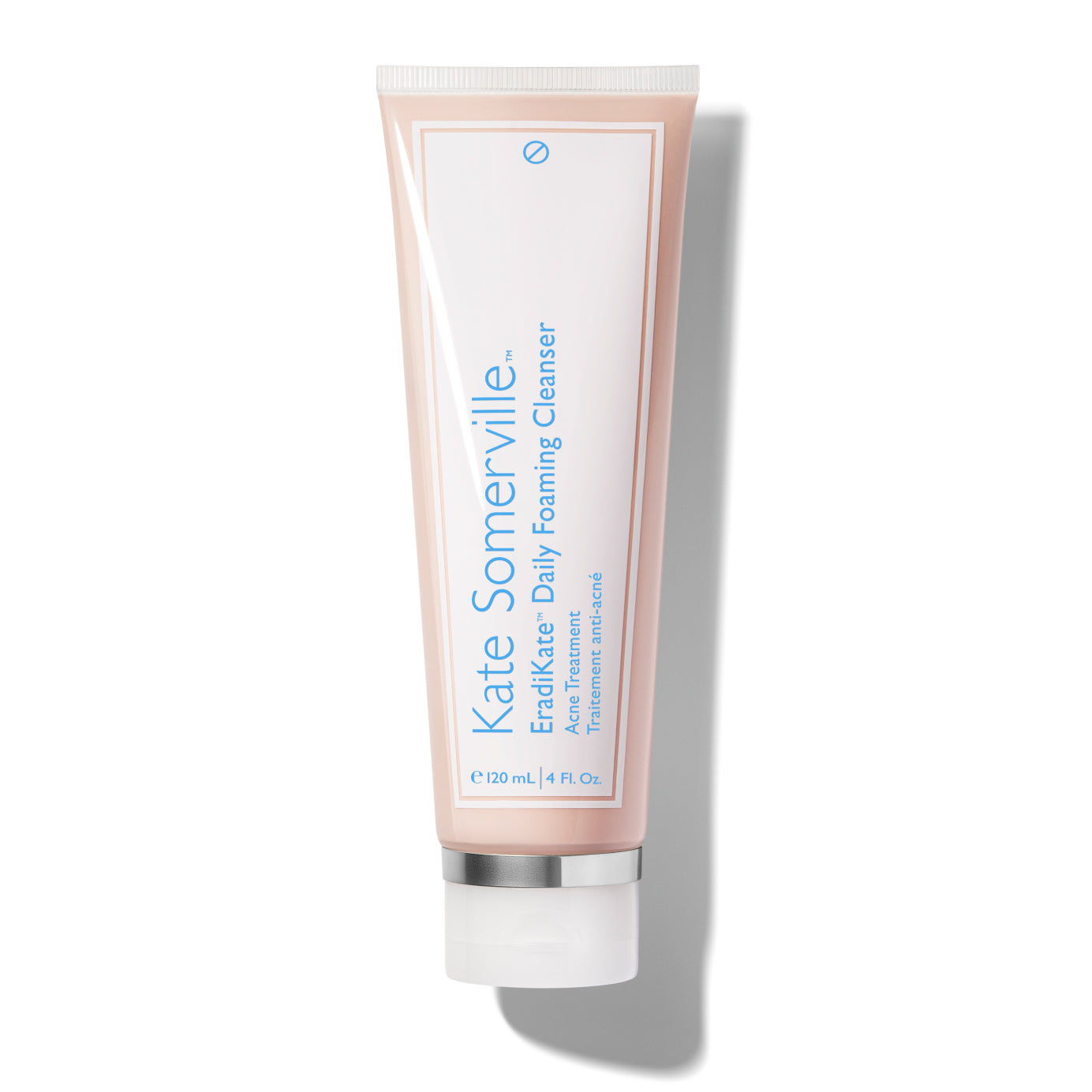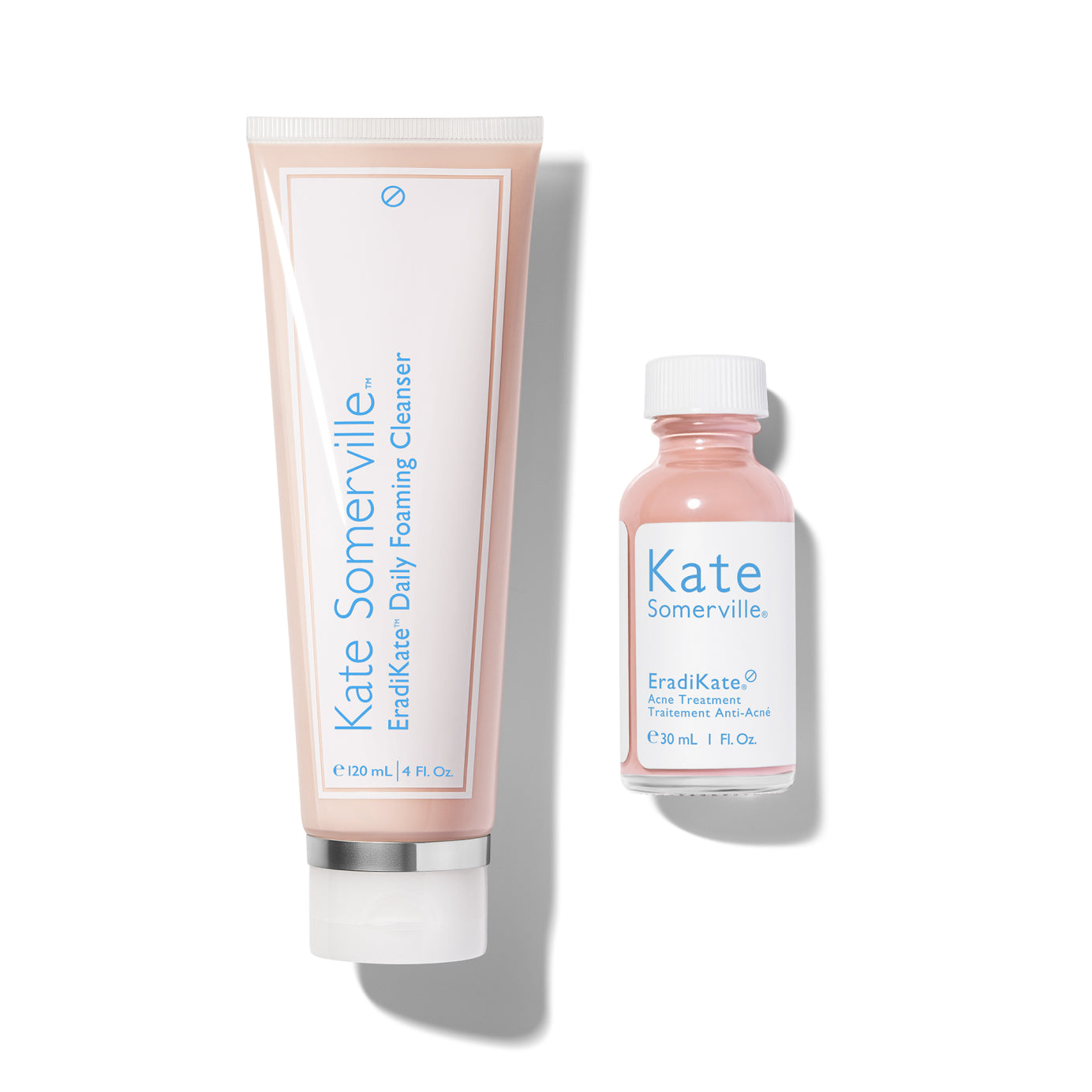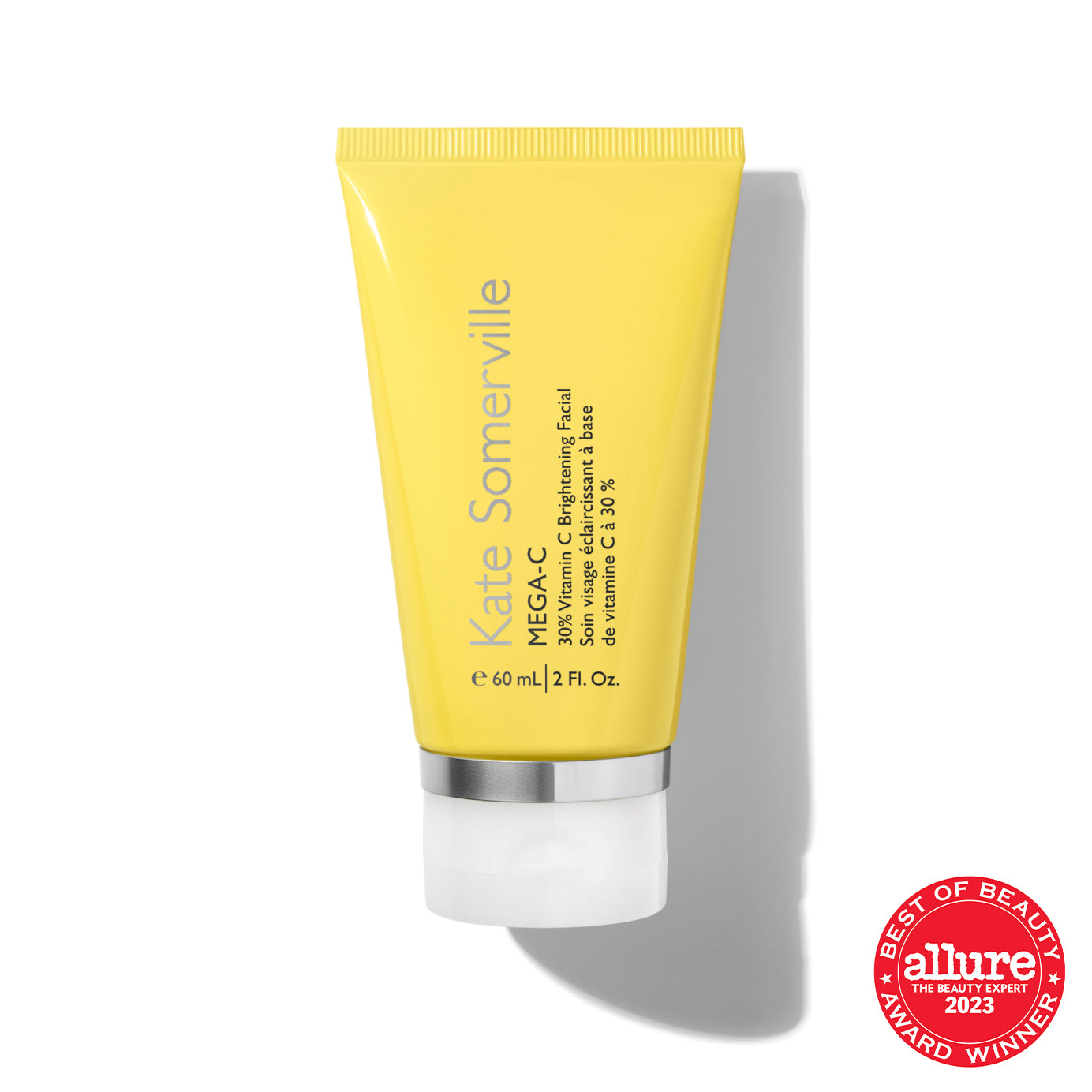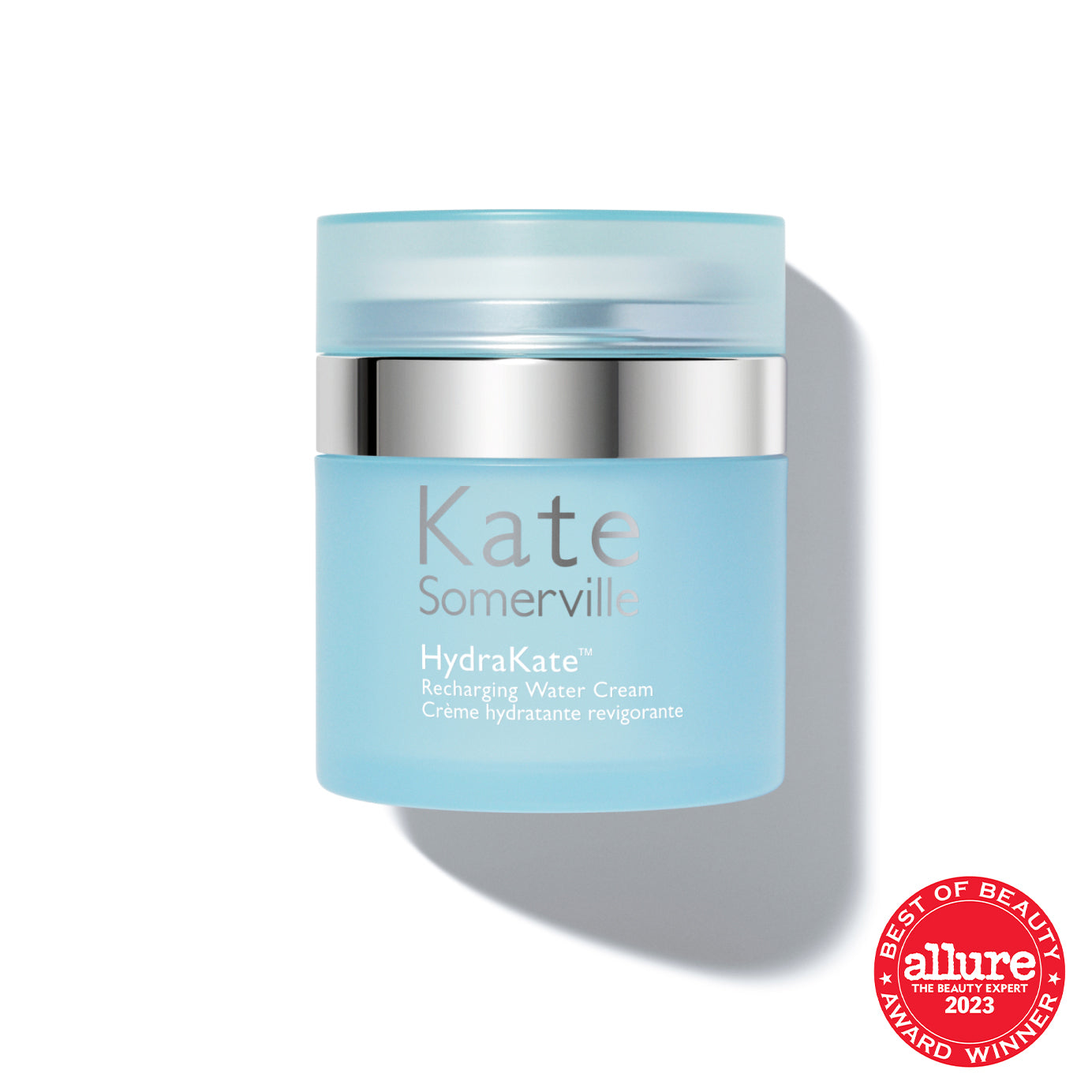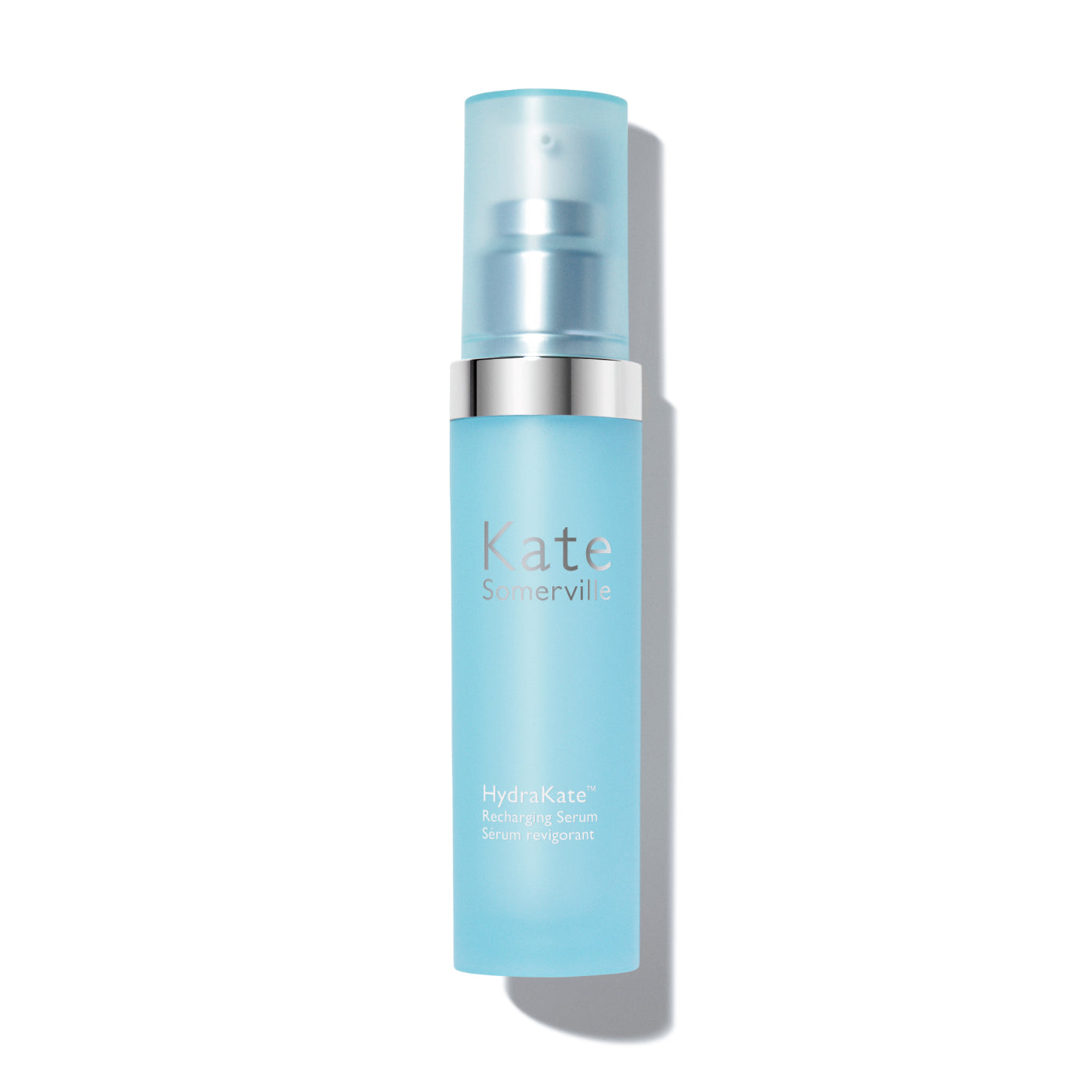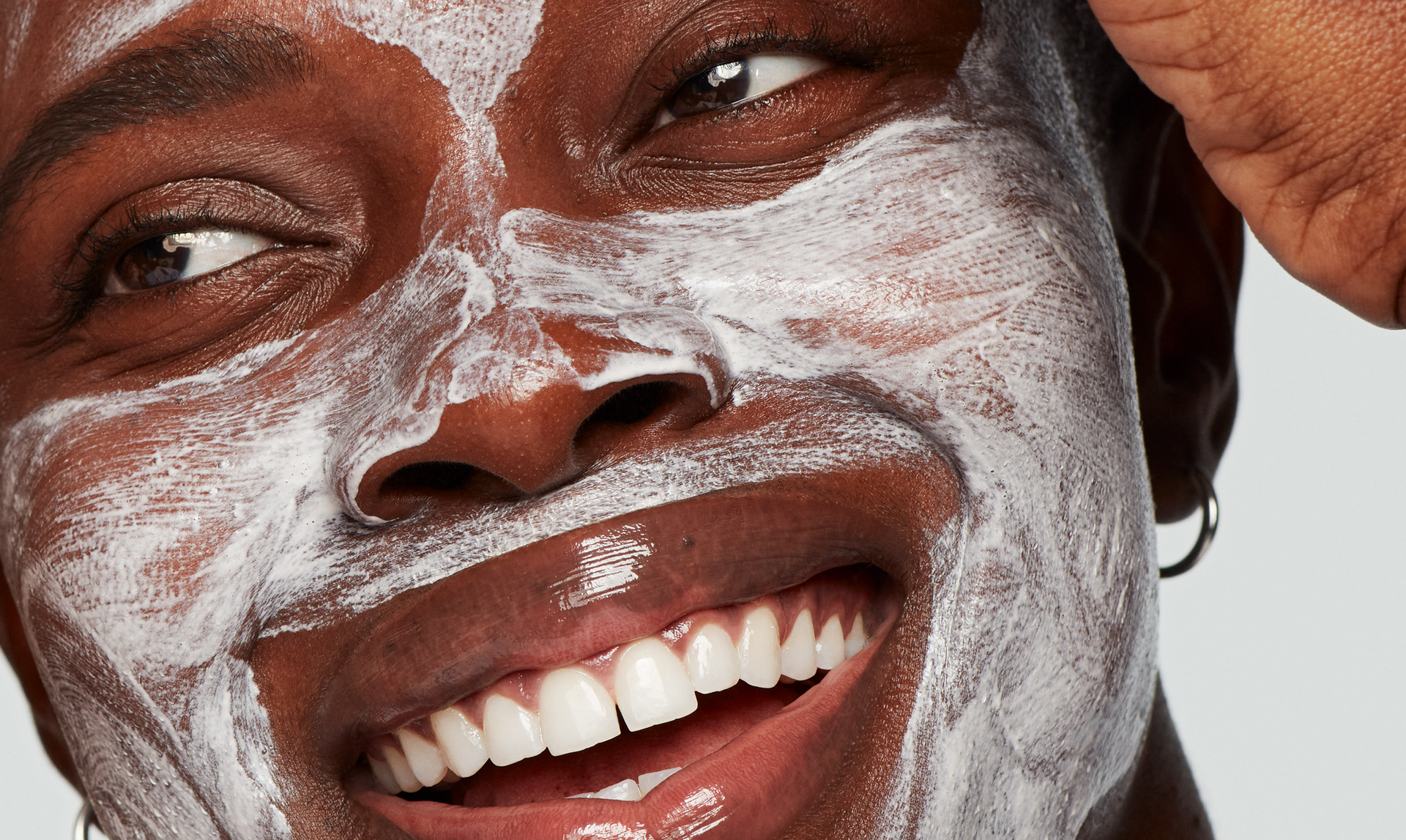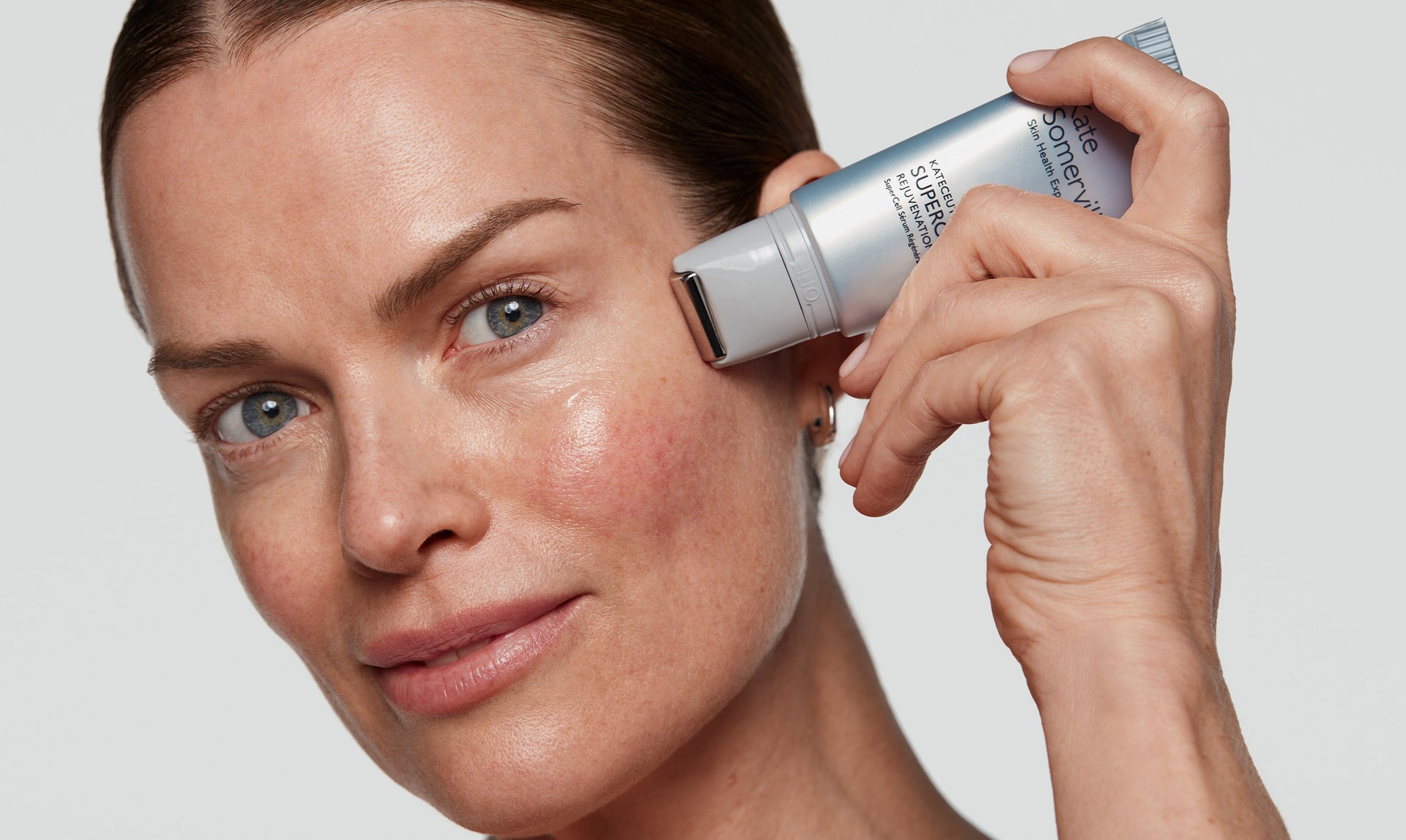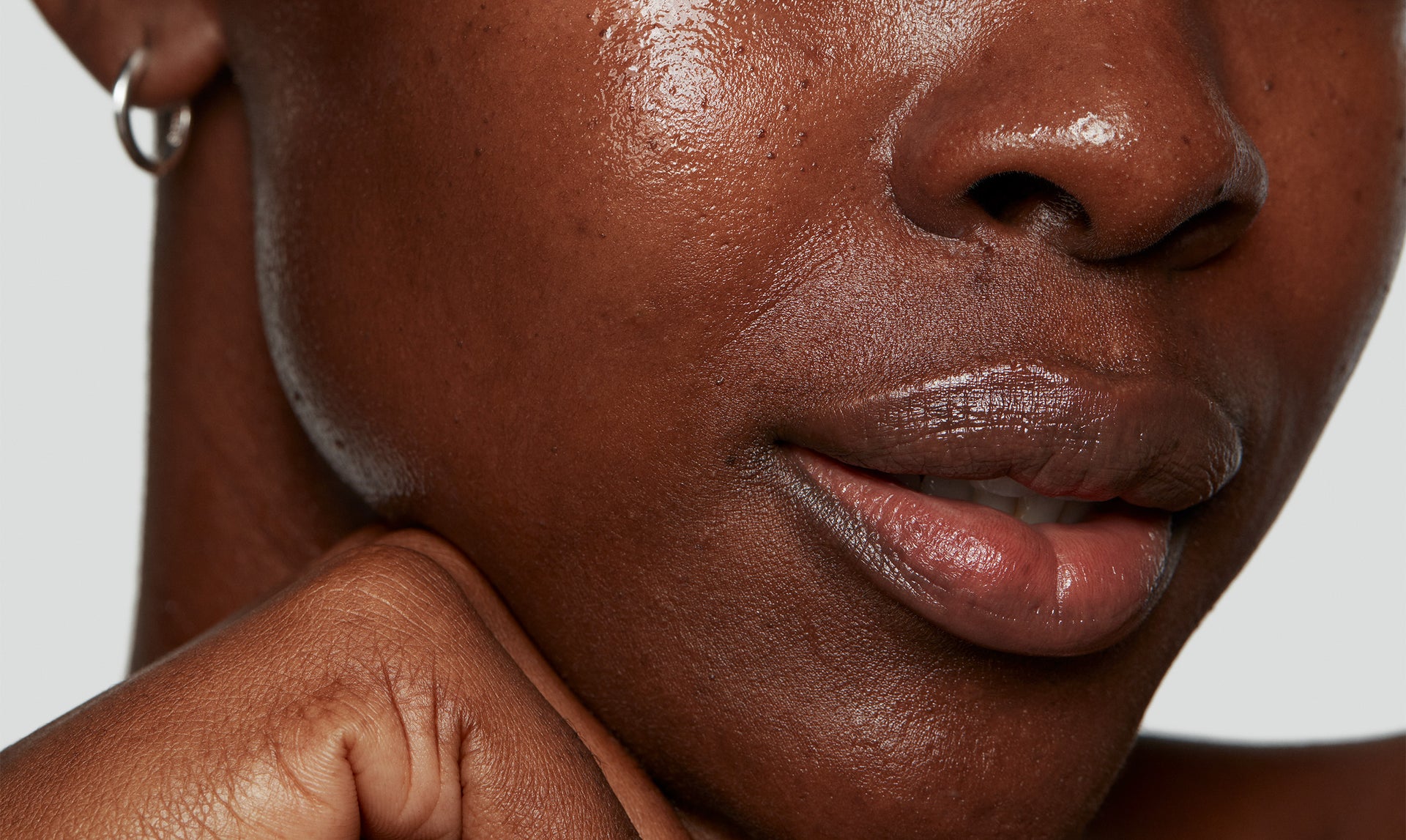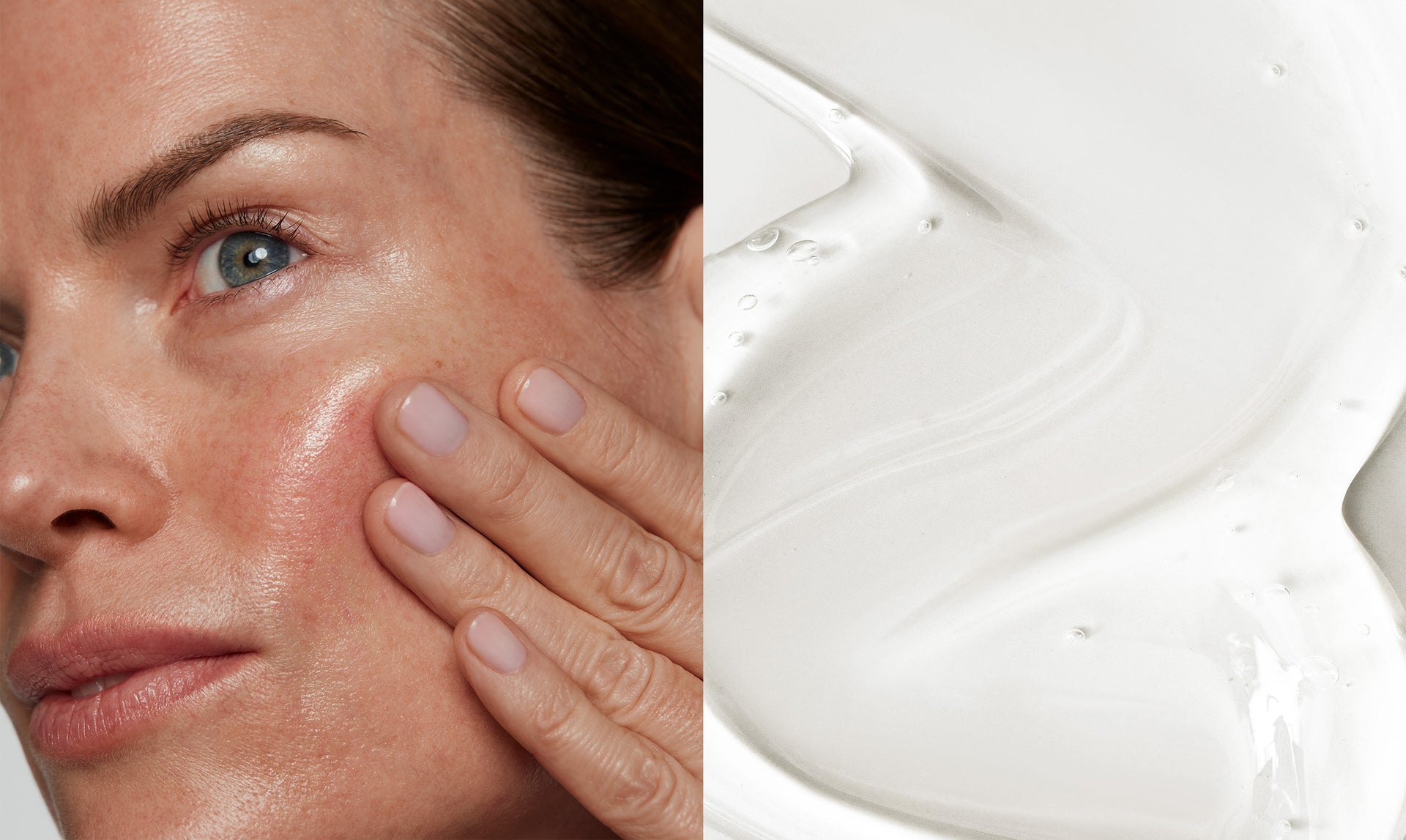Exfoliating your body with a body scrub can leave skin looking and feeling baby soft, smooth, and gorgeous. But exfoliate too much, and things can go awry. In fact, over-exfoliating with body scrubs can lead to a cascade of unpleasant side effects from skin sensitivity and cracking to rough patches and breakouts. So, what’s the just right Goldilocks-level of exfoliation?
While most people can benefit from exfoliating 2–3 times a week, there are certain instances where you may need to decrease your exfoliation needs.
Fortunately, our Kate Somerville Skin Health Experts have put together this guide to help you determine when and how you should exfoliate your body. So, read on for the information you need to establish a body polishing routine that’s just right.
When and How to Exfoliate Your Body
For most people, body exfoliation 2–3 times each week is enough to keep your skin in top condition. To exfoliate properly, make sure the water in your shower is warm—this will help open your pores. Then, gently scrub your exfoliating body scrub in circles over your skin. Let it sit for the suggested time, then rinse away to experience smooth, baby soft skin.
As you become a pro at exfoliating your body, keep in mind you can still over-exfoliate by using your scrub more frequently than necessary or by using a body scrub that isn’t right for your skin type and season (more on this later).
Some signs that you’ve been scrubbing your skin too hard are:
- Irritation
- Redness
- Inflammation
- Rough patches
- Rashes
- Dry and flaky patches
When Not To Exfoliate Your Body
While exfoliating 2–3 times a week is a good rule of thumb to follow, there are times when you may need to put the loofah down. For instance, you should never use an exfoliant if your skin is already injured or irritated from:
- Sunburn
- Laceration or rashes
- Other products, like chemical peels
Why Should You Exfoliate?
Each day, your body sheds approximately 40,000 dead skin cells and replaces them with new ones. And while most of these dead skin cells eventually slough off your body naturally, a fine layer rests at the very top of your epidermis, called your stratum corneum.
When there’s an excessive buildup of dead cells at the stratum corneum, your skin can appear:
- Dull
- Rough
- Sallow
Using an exfoliant is the surest way to assist the skin’s natural sloughing process and remove these dead cells from your skin’s surface. Our founder Kate calls exfoliation “the #1 skin game changer” when it comes to seeing a visible result. Her reasons? By sloughing away dead skin cells from the surface, you reveal younger-looking, fresh skin. You also remove the hardened layer of dead skin cells that make it harder for body and skin care ingredients to absorb and deliver a visible result.
Types of Exfoliants
Did you know there are different methods for exfoliating skin? They can be categorized into three main types: chemical, enzymatic, and mechanical.
Chemical
A chemical exfoliator uses an acid ingredient to remove dead skin cells by breaking them down at an elemental level.[1] Although chemical exfoliants are available in a wide variety of combinations and strengths, several of the most common are:
- Alpha hydroxy acids (also called AHAs)
- Lactic acid
- Glycolic acid
- Beta hydroxy acid (also called BHA or Salicylic acid)
Enzymatic
Although technically a subset of chemical exfoliants, enzymatic exfoliants use the power of natural enzymes to break down dead skin cell proteins similarly to acids. Enzymes, compounds also called proteases, are found in tropical fruits such as:
- Papaya
- Pineapple
- Pear
- Kiwi
Think of enzymatic exfoliation like a Pac-Man game. The enzymes “digest” the sloughed away dead skin cells, revealing fresh, new skin.
Mechanical
Unlike acids and enzymes, mechanical exfoliants, also called physical exfoliants, utilize the strength of your own hands to assist the removal of dead skin cells from the surface of your body. Some common physical exfoliants are:
- Tools that physically exfoliate, such as washcloths, hand mitts, loofahs, or scrub brushes
- Products that physically exfoliate, including sea salt, sugar, pumice, or coffee grounds
Choosing The Right Exfoliant
So, how do you choose the right exfoliating body scrub for you from ALL the available body polishes on the market? Start by asking yourself the following questions about your skin type:
- Do you have oily skin, dry skin, or combination skin?
- Do you have sensitive skin or acne prone skin?
- Do you sunburn easily?
- Is your skin mature or thin?
Skin that’s dry, sensitive, acne-prone, sunburn-prone, and thin may benefit more from a mild chemical or soft mechanical exfoliant. Skin that’s oily or mature might be better suited to stronger chemical exfoliation and mechanical exfoliation.
Another important consideration is whether you’ll need to change your exfoliation routine seasonally. While buildup from sunscreen and sweat in hot weather will require a more vigorous exfoliation, cold weather brings sensitivity and chapped, dry skin that will likely need a more gentle exfoliation. And with the warmer months, you may want to consider updating your scrubbing routine to match your shaving routine[1] .
After evaluating your skin and season, start testing different exfoliants. First, use a small amount on the thin skin of your inner wrist and watch for adverse reactions. Doing this is especially important if you’re using a chemical or enzymatic exfoliant.
Whatever exfoliant you choose, be sure to reevaluate it occasionally to keep your skin in top condition.
ExfoliKate® Resurfacing Body Scrub For Exfoliating Just Right
Finding a routine that keeps your skin feeling baby soft and silky smooth, but not over-scrubbed can take a little practice and adjustment. At Kate Somerville, we recommend that you move slowly with any new product. Start with scrubbing once a week and slowly add more days as your skin tolerates—and, most importantly, always use a high-quality skincare product.
We’ve formulated our ExfoliKate® Resurfacing Body Scrub[2] to bring you the best chemical, enzymatic, and physical exfoliants all in one tidy product. With lactic and salicylic acids, papaya and pineapple enzymes, and best-in-class physical exfoliator pumice, our exfoliating body scrub will help you reveal a dazzling glow from neck to toe. For a head-to-toe glow, also bring home ExfoliKate™ Intensive, our at-home clinic super facial that reveals smoother texture and pores in just two minutes. Both products deliver instant results thanks to expertly formulated ingredients like lactic and salicylic acid work to help polish and refine your outermost layers of skin; papaya, pumpkin, and pineapple enzymes help reveal your inner glow.
One thing to keep in mind as you look to maintain healthy, radiant, baby soft skin – do not use a body exfoliator on the face and vice versa. Your body skin is about 3x thicker than your face skin, and body skin cell turnover takes about 2x longer than your face so it needs an additional kick start to get the fresh, baby soft skin on the body. Which means that ingredients that work to polish body skin are most likely too harsh to use on the face.
Try our ExfoliKate® Resurfacing Body Scrub today. For head-to-toe glow, also try our ExfoliKate™ Intensive.
Sources:
Cleveland Clinic. Skin. https://my.clevelandclinic.org/health/articles/10978-skin
UCSB ScienceLine. How Many Skin Cells Do We Shed Per Day? http://scienceline.ucsb.edu/getkey.php?key=7116
Healthline. Everything You Need to Know About Chemical Exfoliation. https://www.healthline.com/health/beauty-skin-care/chemical-exfoliation#chemical-vs-physical-exfoliation
American Academy of Dermatology Association. How to Safely Exfoliate at Home. https://www.aad.org/public/everyday-care/skin-care-secrets/routine/safely-exfoliate-at-home#:~:text=Those%20with%20dry%2C%20sensitive%20or,chemical%20treatments%20or%20mechanical%20exfoliation.
[1] Healthline. Everything You Need to Know About Chemical Exfoliation.
